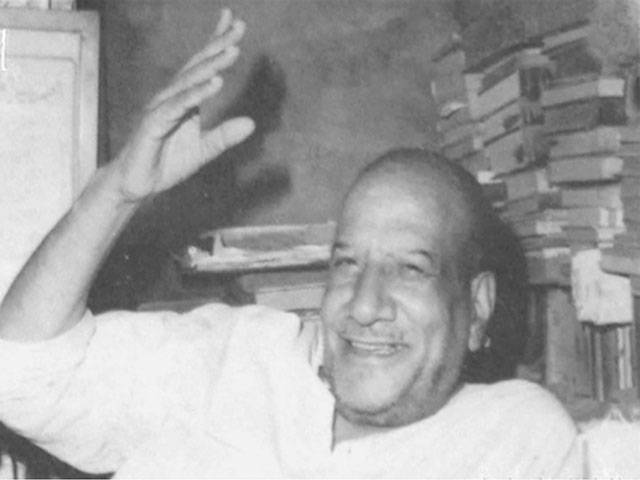Wagah and Attari do not exchange blows
Nor do Gita and Quran engage in a fight
Between apostasy and Islam, there is no bickering
Only profit and loss must always be kept in sight.
–Ustad Daman
Ustad Daman was born in 1911 in Lahore. His father was a tailor and for a time, Daman also adopted the profession but his interest always lied in the poetry. He rose to the prominence after he recited anti-imperialist poetry in a gathering of the Congress in 1930, earning the title of “Poet of freedom” from Nehru. The partition of the sub-continent deeply wounded him. Not only did Daman lose a lot of his Hindu and Sikh friends, students, but his house was also burnt down because of his known affiliations with the Congress. Asked by Nehru to come to India, Daman refused since he could not part with Lahore. After the partition, he spent his entire life in a small room near Bhati Gate and continued writing punjabi poetry against authoritarianism of such governments as of Liaquat Ali Khan, Ayub Khan, Zulfikar Bhutto and Zia, the exploitation of the poor and the rise of religious communalism in the country. Faiz Ahmed Faiz called Daman the Habib Jalib of Punjabi poetry.
It is because of the deliberate omission of figures like Daman from our history, culture and popular consciousness that we are experiencing a continuous rise of authoritarianism today. Daman’s life and poetry exposes to us the violence and hypocrisy of the dominant political and social structures of our society, and his critique offers the possibility of a much more just, humane and compassionate way of being.






